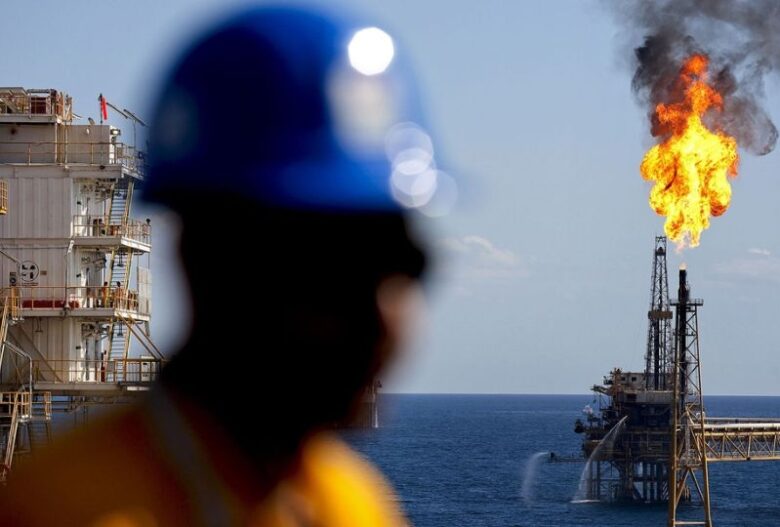The Nigeria Customs Service (NCS) spokesperson, Abdullahi Maiwada, revealed this during the monthly press briefing hosted by the Strategic Communication Interagency Policy Committee (SCIPC) in Abuja on Thursday.
He attributed the achievement to the Nigerian Navy’s intensified efforts against crude oil theft under its ‘Operation Delta Sanity,’ which resulted in the destruction of 15 illegal refinery sites, 17 wooden boats, and 10 refining ovens across Bayelsa, Rivers, Delta, and Ondo States.
“These initiatives have contributed to Nigeria’s crude oil production rising to 1.658 million barrels per day, underscoring the Navy’s vital role in protecting the nation’s economic assets,” he stated.
As part of efforts to minimize smuggling, the NCS recorded 83 seizures across its commands. The items seized included 170,000 liters of Premium Motor Spirit (PMS), 3,083 bags of foreign rice, 1,014 parcels of cannabis sativa, 23 vehicles, and other contraband, with a total Duty Paid Value (DPV) exceeding ₦975 million.
Additionally, the NCS strengthened its ‘Operation Whirlwind’ to combat the smuggling of petroleum products, particularly in border states. This led to the interception of seven PMS trucks, the closure of 12 retail outlets, and the seizure of 466,000 liters of PMS and 23 vehicles.
“Investigations have resulted in the prosecution of seven suspects, while three marketers have been fined by the Nigerian Midstream and Downstream Petroleum Regulatory Authority (NMDPRA). Sealed filling stations were transferred for further action,” he said.
What you should know
Nigeria’s crude oil production rose by 16.7 million barrels in the first half of 2024, compared to the same period last year, according to data from the Nigerian Upstream Petroleum Regulatory Commission (NUPRC).
Despite falling short of expected production levels, the increase represents a 7.3 percent growth compared to the output for 2023. The data analysis excluded blended and unblended condensate, which are not factored into calculations by the Organisation of Petroleum Exporting Countries (OPEC).
With Brent crude oil prices averaging $85 per barrel in 2024, Nigeria may have earned an additional $1.41 billion in gross revenue compared to the same period in 2023. However, this improvement was insufficient to alleviate the country’s economic challenges, as Nigeria continues to borrow heavily to offset reduced foreign exchange inflows.
Nigeria, which relies on crude oil exports for over 80 percent of its foreign exchange earnings, remains vulnerable to fluctuations in oil production and international prices. Although oil prices have stabilized above $80 per barrel, the country has struggled to significantly increase output. Authorities have cited oil theft, large-scale vandalism of oil assets, deteriorating infrastructure in the Niger Delta, and years of underinvestment as key factors behind this persistent issue.
In response to dwindling foreign exchange inflows, Nigeria borrowed $1.71 billion in foreign loans during the first nine months of 2023 to bolster the FX market. Last August, the Nigerian National Petroleum Company Limited (NNPC) secured a $3.3 billion crude oil repayment loan from AfreximBank to support government reforms aimed at stabilizing the exchange rate. Recently, the World Bank also approved a $2.25 billion loan for Nigeria to boost revenue and back economic reforms amid a severe cost-of-living crisis.
The NUPRC data revealed that Nigeria’s oil production reached 235.9 million barrels in the first half of 2024, up from 219.2 million barrels during the same period in 2023. A breakdown of production figures showed 44.2 million barrels were drilled in January, 38.3 million in February, 38.1 million in March, 38.4 million in April, 38.7 million in May, and 38.2 million in June.
In contrast, 2023 saw Nigeria produce 39.2 million barrels in January, 36.1 million in February, 39.2 million in March, with output dropping to 30.1 million barrels in April, 36.8 million in May, and 37.8 million in June.
Despite targeting 2 million barrels per day (bpd) of crude oil production for several years, Nigeria has consistently failed to meet its OPEC quota, which was reduced from 1.74 million bpd last year to 1.58 million bpd in 2024.
Nigeria, Africa’s largest crude oil producer and holder of the second-largest oil reserves on the continent, also boasts over 209 trillion cubic feet (TCF) of gas reserves. However, underinvestment and sectoral bottlenecks have hindered the country’s ability to fully exploit these resources.
To improve accountability, Senator Heineken Lokpobiri, the Minister of State for Petroleum Resources (Oil), announced recently that the federal government had awarded contracts to ensure full metering of Nigeria’s 187 oil flow stations. A software system will also be introduced to track the movement of the country’s oil shipments on the high seas.
“As part of our steps to ensure proper accountability, the Federal Executive Council approved the metering of all our production. We have 187 flow stations across the Niger Delta, and this project will be completed within six months,” Lokpobiri said.
He added that an advanced cargo policy would be implemented to track every cargo of crude oil from loading to its final destination, ensuring that Nigeria can fully account for its oil production.
YOU MAY ALSO READ: Nigeria’s crude oil production reaches 1.66 million barrels per day: What you should know









Got a Question?
Find us on Socials or Contact us and we’ll get back to you as soon as possible.